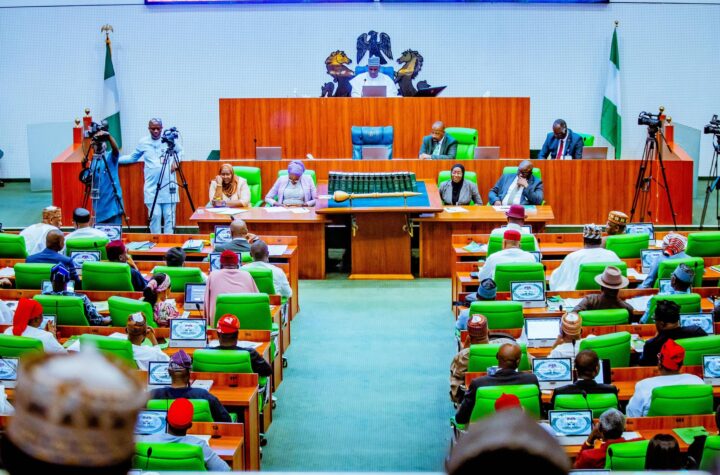By Mercy Aikoye
The House of Representatives has urged the Federal Government to direct the Nigerian National Petroleum Corporation Limited (NNPCL) and the Dangote Refinery to allow independent marketers to lift fuel from the newly established refinery.
This resolution was reached after a motion was presented by Oboku Oforji, representing Yenagoa/Opokuma Federal Constituency, Bayelsa State.
The Dangote Petroleum Refinery, which began operations on September 15, 2024, has only granted major marketers access to lift products, sparking concerns of monopoly and greed. This exclusivity could lead to continued fuel scarcity, affecting Nigeria’s economy.
Lawmaker Oforji criticized NNPCL’s management of crude and refineries, citing lack of transparency and accountability. Late MKO Abiola had also expressed similar concerns in a viral video.
Independent marketers, represented by IPMAN, fear they may need to import fuel to sustain their businesses if excluded from lifting products from the refinery.
On a positive note, the Dangote Group’s commencement of petroleum refining marks a significant step toward Nigeria’s energy self-sufficiency. This achievement could drive cost savings, foreign exchange conservation, and increased Gross Domestic Product.
The House emphasized that NNPCL should allow independent marketers to lift products from the refinery to meet the high demand for Premium Motor Spirit (PMS).
To address concerns, the House urged Dangote Refinery to establish or partner with stakeholders to build Tank Farms or depots across Nigeria’s geopolitical zones.
Speaker Tajudeen Abbas has also inaugurated a panel, chaired by House Leader Julius Ihonvbere, to investigate the petroleum sector crisis and provide recommendations.
The panel includes members Kelechi Nwogu (PDP, Rivers), Patrick Umoh (APC, Akwa Ibom), and Sada Soli (APC, Katsina).
The House of Representatives’ resolution demonstrates their commitment to promoting competition, transparency, and accountability in Nigeria’s petroleum sector.



